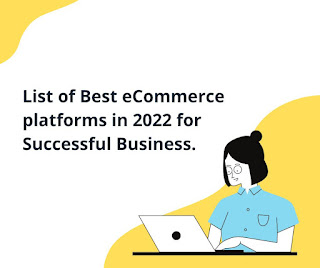Owning a business is a wonderful thing, and having that business on the Internet is even better. Most businesses have successfully moved their operations to online platforms in recent years since it offers numerous benefits to the company, as we will see in this article.
Taking a business online can be accomplished in one of two ways. The first step is to create a website, and the second is to create a business Web Application Development. In this article, we'll explain the application strategy.
Mobile and web applications are undoubtedly familiar to you. Mobile apps are those that run on mobile devices, whereas web apps are those that function with an Internet connection and a browser and are accessible on any device (desktop, tablet, mobile, laptop).
We'll learn more about web applications in this article. What are the benefits of having a web app for your business, how should you approach developing web apps for your business, and what kind of software development companies are good choices for such projects? These are the main topics we'll cover in this article.
Let's look at some additional web application data.
What are web applications?
A web application is an application that can be accessed on a web browser with an active Internet connection. It has a user interface similar to that of a website. However, assuming that applications like Microsoft Excel are web applications is erroneous. Web applications such as Google Docs, Spreadsheets, and others are perfect examples.
Web applications are often those that require the use of a browser and an internet connection to function. For businesses, they provide a variety of features and perks that are required by every business model in order to attract more customers, visitors, and marketing success. A web app delivers a number of advantages to any organization, including 24/7 availability, access from anywhere and at any time, data security, and flexibility.
Now let's look at some of the unique and lesser-known advantages of web apps for businesses.
- Accessibility
Web applications are an excellent way to reach a large number of individuals regardless of their location. Anyone with an active Internet connection can easily access your business web apps from anywhere in the world.
Web applications enable organizations to reach new potential clients and find new chances to increase their reach because of their flexible accessibility. Developing a business web application is a fantastic idea to adopt if you truly want to increase your company's exposure and success.
- Supports multiple devices
Web applications, as you may know, require a browser and an Internet connection to function. As a result, devices such as tablets, mobile phones, and desktop computers are all capable of running web applications because they all have browsers.
As a consequence, web applications are more accessible than mobile apps, which rely solely on mobile devices to work. Therefore, having a business web app is more sensible for any business model.
- Top-notch security
Businesses with a digital presence are currently very concerned about data and information security. The main reason why business owners are investing extensively in cyber security is due to frequent criminality by hackers attempting to steal important information about the company as well as its consumers.
Strong security criteria can be easily attained with business web applications because they come with robust security protocols that avoid security breaches by default. Web applications are installed on a dedicated server that is only accessible by administrators, providing additional protection for the app.
- Customizable
Making changes to an application after it has been developed is a hard call for both the developer and the client. In addition, the application's usefulness is hampered. Web applications, on the other hand, make things easier by promoting customization options and possibilities.
They're developed for a specific company's business procedures. This reduces the need to modify your processes to fit the application. Because the functionality and features of custom apps are developed to meet the demands of specific users and the company's goals, you only pay for what you need.
Web apps can be customized according to company needs by developers and individuals (your employee) with little programming experience. The user interface, visual components, menu boards, and other features of a web application can be easily customized.
You can customize a web application for business at any time to meet your specific needs.
- Integrations
Many times, businesses require additional functionality or a specific feature, which necessitates the use of third-party app integrations. Web apps provide a lot of flexibility and ability for successful and simple integration.
As a result, web applications are a better solution for firms that are rapidly evolving and require additional functionality.
- Maintenance and installation
You can save effort and memory usage of installing the software on each device by using a web application. Web apps are also less demanding on older or reduced devices.
Because every PC has a browser, installation is quick and can be done in the background while employees work on some other tasks. Updates are rolled out remote to all devices, making maintenance requirements greatly decreased.
- Development cost
Frontend and backend development, as well as testing procedures to detect and resolve potential issues, are all part of web application development. The average timeline of developing a web application is 3-6 months. At an inexpensive price, any skilled web app development company may construct web applications tailored to your business's needs and specifications.
For developing web apps, there are a variety of innovative and agile technologies to choose from. You'll require a capable team of developers as well as QAs to ensure the application's quality.
- BONUS POINT
Aside from the afore mentioned advantages, web applications provide businesses better scalability, flexibility, 24/7 availability, enhanced interoperability, easy deployment, easily manageable options & features, and improved business efficiency.
Preferring a web application for your company is the wisest move you'll ever make. Every business model and size that needs to grow faster can benefit from its extensive range of features and benefits.
Let's look at some of the most common and evident concerns about web app development and its legitimacy.
What are some benefits of web-based applications?
Web apps provide scalability, flexibility, accessibility, security, customization, and other benefits that any business requires in order to attract a larger audience and transform an existing business into a profitable one.
What is the importance of web applications?
Web applications make businesses reachable from any device and from any location; they make enterprises visible on the internet platform; visitors can access information at any time; and they provide excellent data security, among other benefits. Web applications are a fantastic method to grow your business by taking advantage of their unique features and functionalities.
Why is web app development important for business?
Businesses need web application development because it delivers the flexibility, scalability, stability, accessibility, and bespoke features and capabilities that any successful business model needs.
What kind of development agencies are good?
Web application development firms with a strong track record and portfolio, as well as competent developers and testers, are typically regarded as good web app development companies. Before beginning the project, make sure you get all of your questions answered and clear all the terms and conditions.
How to find and approach a good web app development company?
To determine a development agency's reputation, consider their past performance, client reviews, area of specialization, project delivery records, and the authenticity of their developers and testers, among other factors. To get in touch with a competent web app development business, simply ping them or filling out an inquiry form.
Summary
We've arrived at the end of the article, where we'll summarize the main points. Web applications for business are the most cost-effective way to introduce your company to more individuals who are already looking for the services or products you offer.
The web app's quality and features will certainly assist any size business model. Your business will be online and accessible to users at all times, and you will be able to customize features and settings to suit your needs and business requirements. The safest bet for getting your business online is to use a web application, which comes with a slew of advantages.
However, before beginning the development of your company's web application, it is critical to seek a reputable development company that excels in its profession. We've given you a few pointers on how to pick the best web app development company; ponder about them before hiring any agency.
Overall, web applications are fantastic. Yes, they are fantastic software inventions that have already aided a variety of business models in their quest for greatness and success.
Any business cannot function efficiently without the use of web applications. What you need is the highest level of functionality. Online application development requires a well-thought-out plan and people capable of building game-changing web applications!






.jpg)